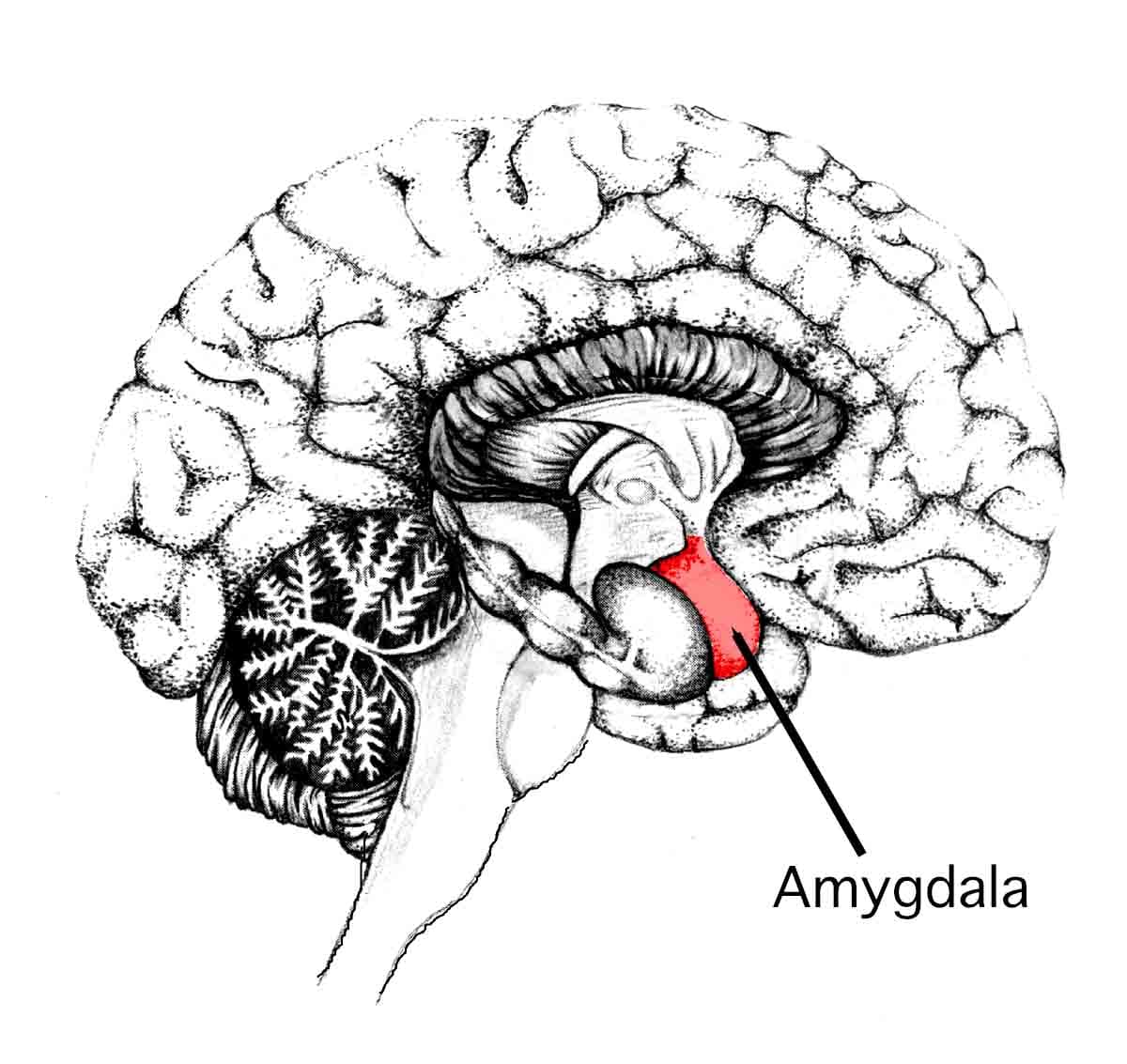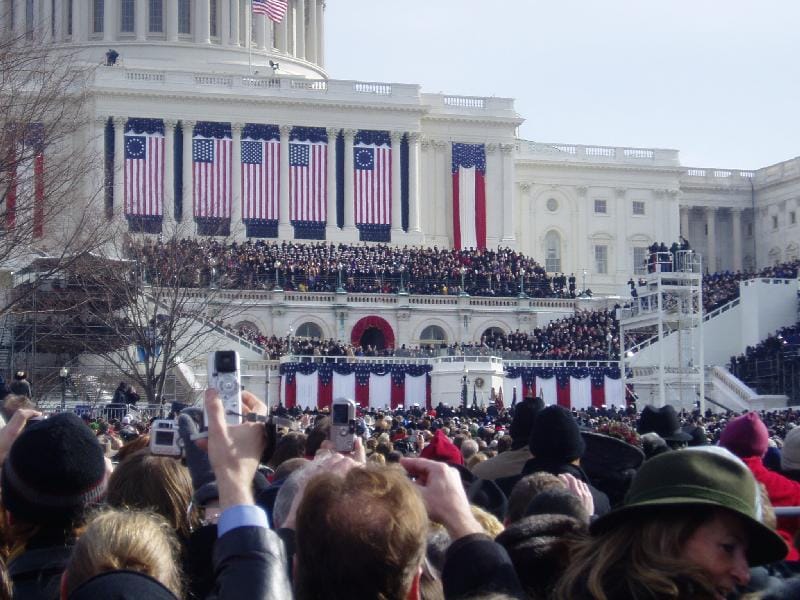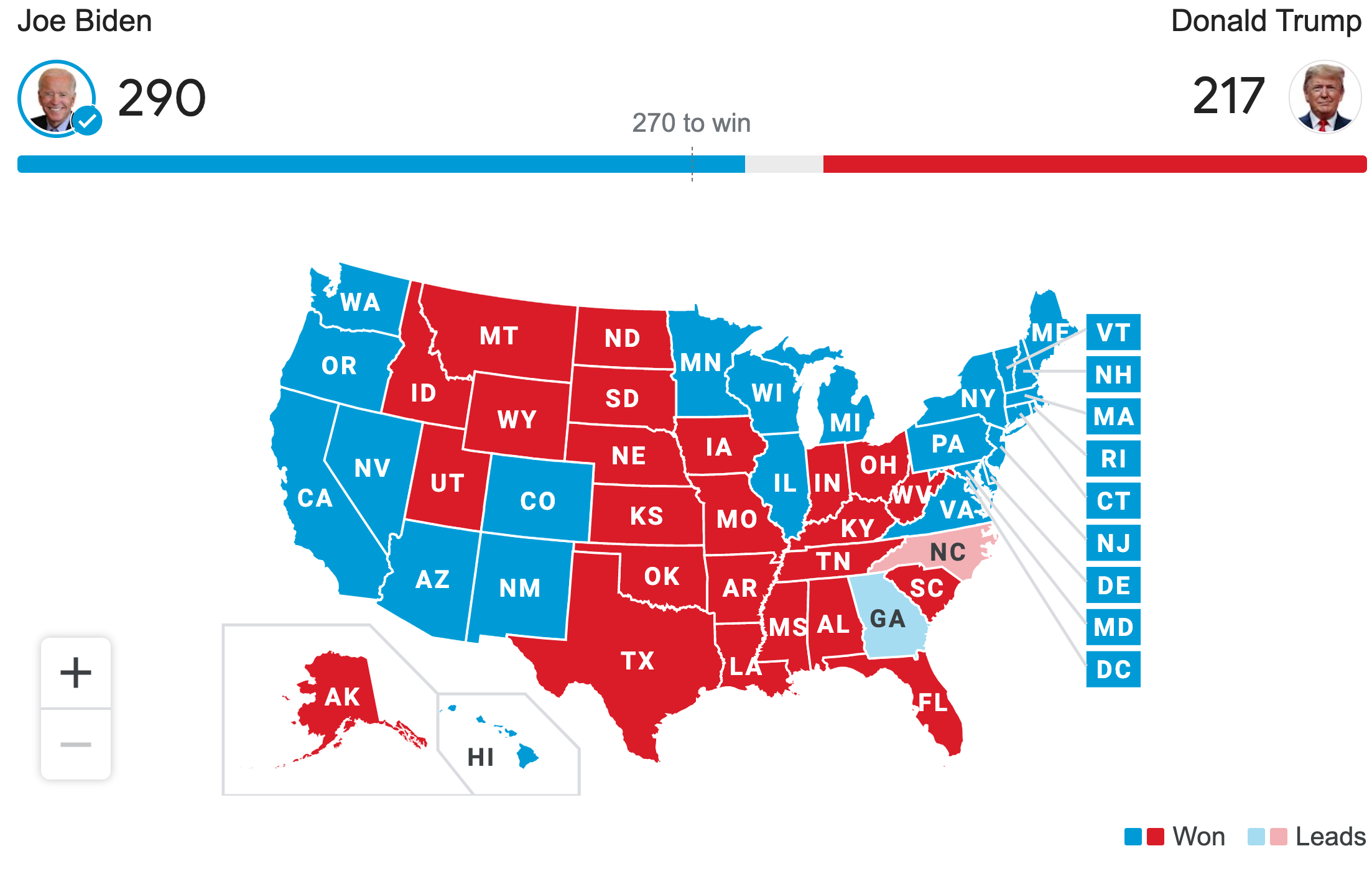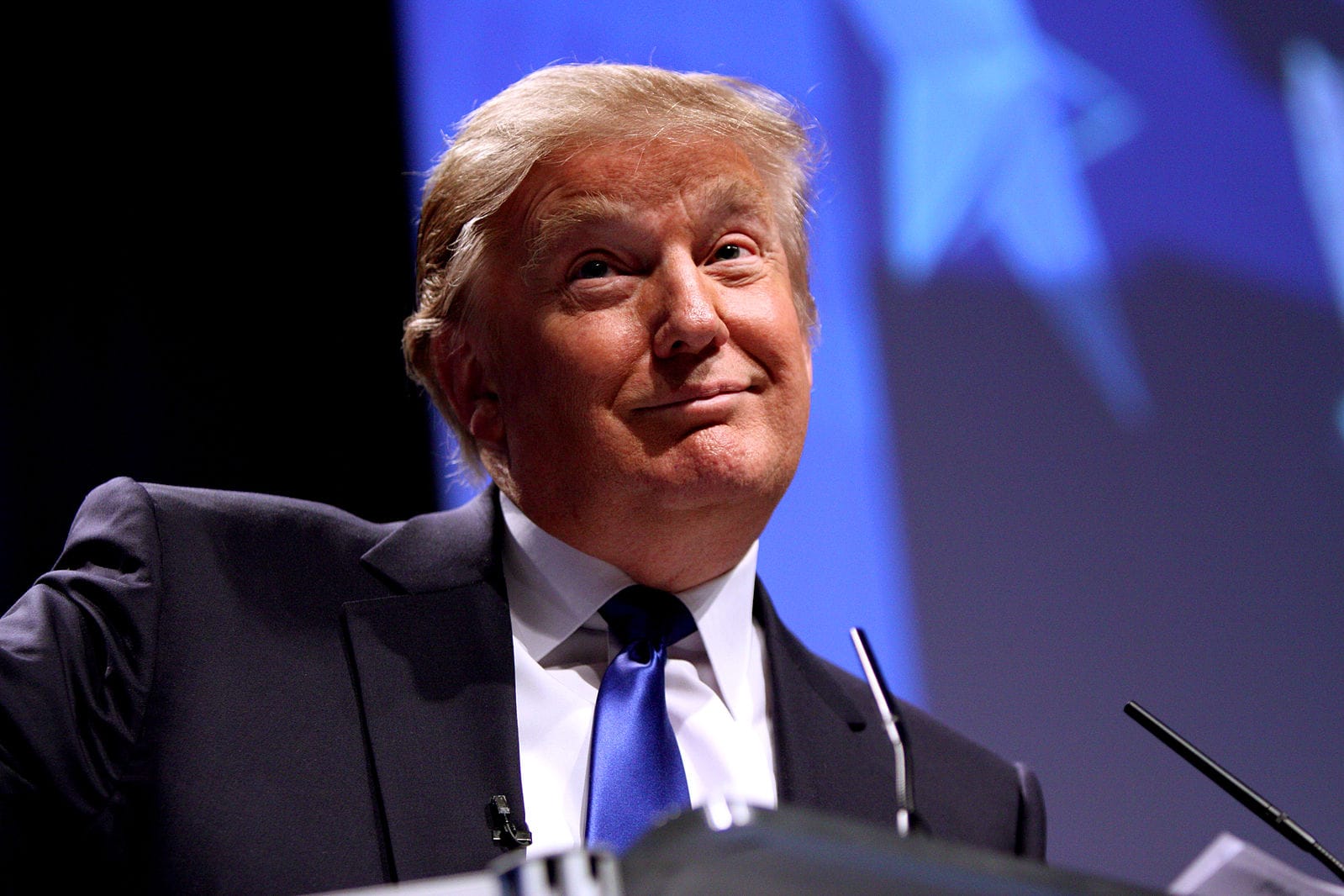The Presidential Election: Is It Over?

It’s been over a week since Election Day and America still doesn’t know for sure who will be sworn in on Jan 20. It looks an awful lot like Joe Biden, but Donald Trump and his supporters have cast a shadow of a doubt over the election results in close and electorally crucial swing states.
So it’s actually worse than not knowing for sure. A large and irate faction of Americans is certain Joe Biden won. Another large and irate faction of Americans is certain Donald Trump won.
These lobes of America’s hive mind have spent the last week (year? decade?) yelling at and abusing each other on social media. But the posts are more amygdala than neocortex. The amygdala is near the brain stem and very ancient (at least half a billion years old).

The neocortex is the front-top of the brain behind your eyes. It makes sense out of what your eyes see. By a very happy accident, its wiring can double as a machine for reasoning and making sense of the world. Because it got so big and good at its job, we can use all that marvelous wiring to see things that our eyes aren’t telling us are there, but that are very real:
Like dreams, different possible futures, and even different sides of an argument.
But partisan politics is an expert at exploiting the ancient lizard brain, inflaming fear and anger, and feeding on it for votes and power. Hey what did any of us expect?
A partisan is as a partisan does.
It’s as if they think they can shout, shame, scream, and browbeat their way to an electoral victory. Maybe they can if independent voters, moderate partisans, and more reasonable minds let them.
Partisan Politics Exploits The Lizard Brain Again: Electoral Crisis Ensues

Blame hyper-partisanship in American electioneering and politics. That was a powder keg waiting to go off, as we have repeatedly warned on the pages of Independent Voter News.
The ultra-tight election results in multiple states were the spark that set off this transition crisis. People on all sides are worried it threatens the very legitimacy of our form of government.
Fortunately for us all, the United States has an at least passably disciplined legal system to filter out all the noise and determine facts and enforce the laws.
So is the presidential election over? Not technically. It could even still be in play.
Usually the winner is obvious on election night, and the loser calls to concede. Hillary Clinton called Trump to concede early Wednesday after the 2016 election. Two days later, Barack Obama had Trump over to the White House to begin the transition process.
Here’s a quick-and-dirty thumb to the wind: Joe Biden hasn’t done the “You’re fired!” thing for the cameras yet. That’s because it would be a humiliating embarrassment if there’s any chance left Donald Trump could wring a victory out of the 2020 election. It’s not over until Congress tallies the certified electoral votes. Then you’ll hear Biden utter those two words. (Or maybe you’ll never hear them. As much as the base would relish the moment, Joe Biden may wear the “decent and dignified” hat to wash out the teledrama of the Trump years. Jill Biden jumped the gun though.
You're fired!(?)
Adding to the worries is the way both candidates are proceeding as if they won. It is a bizarre and unsettling turn of events, even though we anticipated this for weeks leading up the election.
President Trump is refusing to begin the normal transition process, even as Joe Biden has assembled a transition team to prepare to take the reins. Senate Majority Leader Mitch McConnell is backing Trump’s efforts to litigate the election results:
Joe Biden promised he wouldn’t declare victory until the election is certified.
In his first broken promise as president-elect, Biden wasted no time declaring victory.
The results have not been certified, and the electors haven’t even yet met to cast their votes.
NBC News has a list of some of Trump's biggest broken promises over his term. Joe Biden has some catching up to do, but so far the duopoly hasn't failed to break a lot of promises.
According to a white paper (recently updated ahead of the election in late October) by the Congressional Research Service, here is the Electoral College Timeline...
The Long Road to Inauguration Day - Jan 20, 2021

- Contest results in any state must be settled by a Dec 8 deadline. Expect a month of litigation from both campaigns ahead. More details on that below, and the merits of their arguments.
- Electors vote on Dec 14. “Faithless electors” are those who vote against the candidate to whom their state bound them. The CRS notes voting for the candidate that carried an elector’s state “is not required by the Constitution.” This has happened before, but never affected a presidential election result. 32 states have laws against this, and they've been upheld by the SCOTUS. The other 18 can go rogue. If Donald Trump can claw back any states in the courts, this could be a factor.
- Electoral vote results are certified on Dec 23. If any state is late meeting this deadline, the President of the Senate (Vice President Mike Pence at the moment) is required by law to request a copy of whatever results a state has from its secretary of state, and from the judge in the US district court ruling over federal law in that state.
- On Jan 6 the Congress meets to tally the electoral votes. During this joint session, members may raise objections to tallies from any state. If a member of each house makes an objection in writing, the joint session recesses for each house to debate the objection and vote. With a blue House and red Senate, we won’t likely get stuck here.
- On Jan 20 the certified winner of the presidential election takes the oath of office and begins their four-year term as president. Lowkey: Then the 2022 midterm campaign season, and pretty much even the 2024 presidential election campaign begins. (Who's already bumping Christmas music?)
Donald Trump Supporters Cry Fraud, Joe Biden Supporters Think They’re Lunatics
Is this dress blue or white?
It's hard to believe, but millions of people see the opposite color than you did.
Is this saying Laurel or Yanny?
Also hard to believe, but millions of people heard the opposite word than you.
Is this legitimate or a fraud?

I know, millions of people are a bunch of raving lunatics! Go long straight-jacket stocks!
There’s no denying this year’s election results are the most eccentric of any presidential election cycle in living memory. That’s given rise to many of the doubts swirling around today.
After an unprecedented allowance for mail-in voting, which Trump preemptively warned would be open season for fraud, voter turnout this year surged to levels unseen in 120 years. That’s with now over 100 million mail-in ballots counting toward the total 159.8 million turnout. CNBC reports:
We saw massive MAGA rallies, with crowds roaring, “WE LOVE YOU!” as President Trump basked in the adoration. And Joe Biden speaking to anemic crowds of a dozen or so.
The optics certainly bear a sharp contrast to the high turnout for Biden, but that doesn't prove anything. Anyone who has ever voted for a candidate without once going to see them speak can understand many other millions may have done the same who voted for Joe Biden this year.
How Can We Know What's True Anymore? Endless Partisan Subterfuge Has Created A Trust Deficit Crisis
President Donald Trump has alleged rampant vote fraud in the 2020 presidential election.
Is there any substance to those claims? Is he hanging on because there’s a real chance, or because he’s deluded? Or is it all bluster to save face and polish the tarnish off his image before he exits? Donald Trump’s brand as a winner is very valuable and very important to him. (And his kids.) Or is Trump grinding the gears of democracy on the way out for spite? He loves revenge.
Would the people who compared Donald Trump to literally Hitler be willing to fake a few thousand votes here and there where it counted to swing the election? To stop literally Hitler from winning? What would you do to stop literally Hitler?
Top House Democrats compare Trump's rise to Hitler's (CNN, 2019)
Just How Similar Is Donald Trump to Adolf Hitler? (Newsweek, 2016)
'Literally Hitler' Election Mailer Is Protected by the First Amendment (Reason, 2020)
Would the same DNC that cheated Bernie Sanders out of the 2016 nomination cheat Trump out of the 2020 election? Could Donald Trump be withholding the strongest evidence of vote fraud in 2020, even as he brashly trumpets these claims, because he wants to give Democrats less time to prepare a defense ahead of more lawsuits? Should we "trust the plan" as MAGA Twitter says?
Any of it's possible and even plausible, but that's not the same as true, or as proven. Here's a good rule of thumbs as MAGA country veers off into Russiagate level conspiracy theories for solace:
Don't advance anything as true unless you're sure it is.
With all the subterfuge and stubborn irrationality in politics, no one can blame either side for believing or doubting any of these theories. Certainly no one can blame any of us for not trusting a word most news outlets, politicians, and social media talkers say about it.
So let’s aim for the clearest picture possible in these very muddy waters.
Below are some of the important facts about the election and fraud that we know so far. And what chances Donald Trump has of prevailing for a second term. They are slim, but not negligible.
Trump Is Treading On Thin Ice, Here's How He Could Pull Off A Win, But I Wouldn't Bet Any Money On It

As the results currently stand, Joe Biden has 290 electoral votes, and Donald Trump has 217. To win, Donald Trump would have to flip states worth 37 electoral votes in total from blue to red to best Biden by 1 vote. The Trump campaign has focused its litigation efforts on Michigan (16), Pennsylvania (20), and Georgia (16), as well as Nevada (6) and Arizona (11).
The Trump campaign will get a recount in Wisconsin (10) after the results are in. They’ll likely drag it out until the state’s Nov 17 deadline. State law allows the loser to request a recount with a sworn statement, but Trump’s campaign will have to pay for it. At the current count, Joe Biden leads Donald Trump in Wisconsin by some 20,000 votes 49.6% to 48.9%.
To win, Trump would need to recapture Pennsylvania plus Michigan OR Georgia and one of the other states. Here is a summary of the Trump campaign’s substantive complaints:
Trump Campaign Election 2020 Lawsuits in Pennsylvania
In Donald J. Trump for President, Inc. v Bookvar (read the Trump campaign’s complaint for declaratory and injunctive relief here), Trump’s team asks for the court to block certification of the current results. The corporate media has pointed out repeatedly there is: No evidence of fraud (sometimes styled “no evidence of widespread fraud”). That's not exactly true. There is some evidence, but nothing that could plausibly swing any states that we know of.
The more evidence of fraud Donald Trump can show, the stronger his case will be. For example, the witness testimony of a USPS worker and USMC veteran who served in Afghanistan and Iraq, named Richard Hopkins, who says he heard supervisors discussing backing-dating ballots.
He signed an affidavit to that effect. House Democrats claim he recanted to a USPS Inspector General, but they offered no evidence. Hopkins insisted in a public statement that he did not recant, and describes intimidation tactics used by USPS I.G. Russell Strasser. You can listen for yourself and decide if you think this is normal or if the I.G. was intimidating a whisteblower:
Regardless, evidence of fraud isn’t the threshold that Trump’s team will have to meet in court to keep the results in Pennsylvania from being certified. He only has to prove that the law was broken, and that the constitutional rights of voters were violated. In the complaint, his team makes a formidable case that that is exactly what happened in the Commonwealth of Pennsylvania.
At least that's the legal theory underlying the complaint his campaign has taken to court in the Pennsylvania lawsuit. It details how state law was repeatedly violated in the procedures of this election, diminishing voter rights, and violating the privileges and immunities and equal protection clauses of the 14th amendment. It is not a given that PA's results will stand in court.
Trump Campaign Election 2020 Lawsuits in Georgia
In Georgia the Trump campaign has put up a weak fight. His only legal action there so far was a petition for a judge to command enforcement of Georgia law requiring absentee ballots to be turned in by 7pm. The judge dismissed the case on Nov 5, finding no evidence the ballots were late. Embarrassingly for Trump, the petition was a trifle over 53 (fifty-three) ballots.
That would hardly be enough to change the election result. The 14,000 vote spread in Georgia is narrow, but not that tight. In Georgia, Trump either has nothing, or is playing whatever he has close to the chest for now. But it looks like he has nothing. If he does, time is against him.
Trump Campaign Election 2020 Lawsuits in Michigan
In Michigan, the Trump campaign has already lost one lawsuit to prevent the results from being certified. He filed another, modified suit Tuesday, alleging irregularities in vote tabulation.
The suit includes affidavits from Republican observers that they were harassed and prevented from getting close enough to see the ballots being counted. In any event, it’s hard to see a path to overcoming Biden’s 145,000 vote lead, short of the 6 to 3 conservative Supreme Court twisting into a pretzel to blindside the peninsula’s residents in a truly wild card decision. Let's call it a juris ex machina. But don’t put it past the high court, or this absolutely bizarre year of twists and turns.
Trump Campaign Election 2020 Lawsuits in Arizona and Nevada
Out west in Arizona and Nevada, where Trump currently trails by some 11,000 and 37,000 votes respectively, it doesn’t look very sunny for the sitting president either. With two suits rejected in Nevada, and one holdout case ongoing in Arizona, similar to another that has already been dismissed, the time is running out for the Trump campaign to come up with anything better, or a Hail Mary pass that is sure to bend the law to all appearances to pull a win out of these results.
So is the election over? Nope. Is it in play? Yeah. Is it likely Joe Biden will be our next president? Very likely, but we'll all be glued to our screens to see what Donald Trump does next.
---
Disclosures: I am a lifelong independent voter. 2008 was the first election I voted in. I live in an open primary state, so I have never felt it necessary to join a party. I’ve voted for Republicans and Libertarians. There are Democrats in the US I would vote for if they were on my ballot. In this election I fiercely opposed Joe Biden; and endorsed Donald Trump for voters in swing states, and any other third party or independent candidate to boost their signal in non-swing states. So now you know my candidate bias, and a bit about how I think about voting. But in addition to being a voter with political biases (very pro-free markets, very pro-personal liberty, and very anti-war), I am a disciplined journalist with a decade-long record of well-sourced, accurate reporting and clarifying analysis. I hope you found this explainer useful. For more like this, join us on Facebook.





